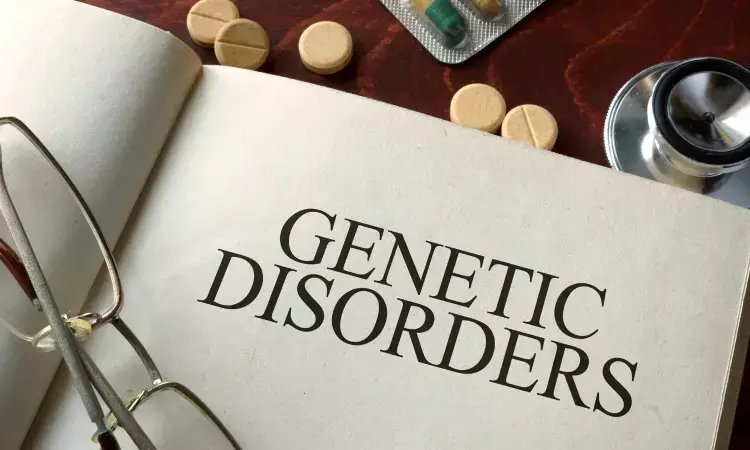- Home
- Medical news & Guidelines
- Anesthesiology
- Cardiology and CTVS
- Critical Care
- Dentistry
- Dermatology
- Diabetes and Endocrinology
- ENT
- Gastroenterology
- Medicine
- Nephrology
- Neurology
- Obstretics-Gynaecology
- Oncology
- Ophthalmology
- Orthopaedics
- Pediatrics-Neonatology
- Psychiatry
- Pulmonology
- Radiology
- Surgery
- Urology
- Laboratory Medicine
- Diet
- Nursing
- Paramedical
- Physiotherapy
- Health news
- Fact Check
- Bone Health Fact Check
- Brain Health Fact Check
- Cancer Related Fact Check
- Child Care Fact Check
- Dental and oral health fact check
- Diabetes and metabolic health fact check
- Diet and Nutrition Fact Check
- Eye and ENT Care Fact Check
- Fitness fact check
- Gut health fact check
- Heart health fact check
- Kidney health fact check
- Medical education fact check
- Men's health fact check
- Respiratory fact check
- Skin and hair care fact check
- Vaccine and Immunization fact check
- Women's health fact check
- AYUSH
- State News
- Andaman and Nicobar Islands
- Andhra Pradesh
- Arunachal Pradesh
- Assam
- Bihar
- Chandigarh
- Chattisgarh
- Dadra and Nagar Haveli
- Daman and Diu
- Delhi
- Goa
- Gujarat
- Haryana
- Himachal Pradesh
- Jammu & Kashmir
- Jharkhand
- Karnataka
- Kerala
- Ladakh
- Lakshadweep
- Madhya Pradesh
- Maharashtra
- Manipur
- Meghalaya
- Mizoram
- Nagaland
- Odisha
- Puducherry
- Punjab
- Rajasthan
- Sikkim
- Tamil Nadu
- Telangana
- Tripura
- Uttar Pradesh
- Uttrakhand
- West Bengal
- Medical Education
- Industry
Dersimelagon significantly increased duration of symptom-free sunlight exposure in erythropoietic protoporphyria: NEJM

A study entitled "Dersimelagon in Erythropoietic Protoporphyrias", published in the New England Journal of Medicine, has concluded that at 16 weeks, both the dosage of dersimelagon, 100 mg or 300 mg given once daily is tied significantly to increased time to the first prodromal symptoms that are associated with sunlight exposure when compared to the placebo.
Manisha Balwani, M.D., was the lead researcher and explained the background of the study.
It is already known that Erythropoietic protoporphyria and X-linked protoporphyria are rare genetic disorders which are inborn errors of the heme biosynthesis pathway. This is associated with elevated levels of circulating metal-free protoporphyrin and phototoxicity. The patients suffer phototoxic attacks following exposure to visible light.
Dersimelagon is a selective melanocortin 1 receptor agonist. It is administered orally and increases levels of skin eumelanin with a safe profile in the phase 1 study.
The researchers conducted a phase 2 trial to investigate the efficacy of this drug in these patients in which patients aged 18 to 75 were randomly assigned to ratio of 1:1:1. These patients received a placebo or dersimelagon 100 or 300 mg dose once daily for 16 weeks.
The time to the first prodromal symptom related to sunlight exposure was the primary outcome measured in the study using an electronic diary to record the data.
The study results are as follows:
- One hundred two patients, 93 with erythropoietic protoporphyria and 9 with X-linked protoporphyria, underwent randomization; 90% completed the treatment period.
- The mean daily time to the first prodromal symptom increased with dersimelagon.
- The least-squares mean difference from placebo in the change (baseline to week 16) was 53.8 minutes and 62.5 minutes in the 100-mg and 300-mg dersimelagon group.
- The patients receiving dersimelagon had improved their quality of life.
- The adverse events recorded were nausea, freckles, headache, and skin hyperpigmentation.
They wrote, "At both doses, we found that dersimelagon increased the duration of symptom-free sunlight exposure in erythropoietic protoporphyria or X-linked protoporphyria patients.
The study's limitations include a small sample size, a lack of racial and ethnic diversity, and no long-term follow-up.
Mitsubishi Tanabe Pharma funded the study.
Further reading:
Dersimelagon in Erythropoietic Protoporphyrias. N Engl J Med 2023; 388:1376-1385, DOI: 10.1056/NEJMoa2208754
BDS, MDS in Periodontics and Implantology
Dr. Aditi Yadav is a BDS, MDS in Periodontics and Implantology. She has a clinical experience of 5 years as a laser dental surgeon. She also has a Diploma in clinical research and pharmacovigilance and is a Certified data scientist. She is currently working as a content developer in e-health services. Dr. Yadav has a keen interest in Medical Journalism and is actively involved in Medical Research writing.
Dr Kamal Kant Kohli-MBBS, DTCD- a chest specialist with more than 30 years of practice and a flair for writing clinical articles, Dr Kamal Kant Kohli joined Medical Dialogues as a Chief Editor of Medical News. Besides writing articles, as an editor, he proofreads and verifies all the medical content published on Medical Dialogues including those coming from journals, studies,medical conferences,guidelines etc. Email: drkohli@medicaldialogues.in. Contact no. 011-43720751


